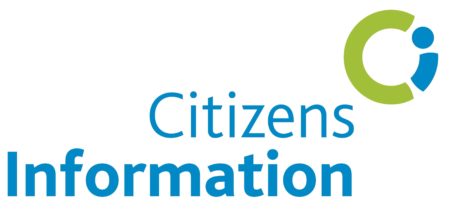19 November 2025
By Mary Bermingham
mary@TheCork.ie
Ciara O’Gorman, Development Manager with South Munster Citizens Information Service. “Recently we have been supporting people with their LPT returns among other issues. Our advocacy service is also busy. We support people with appeals in relation to their unsuccessful applications for various social welfare payments. Frequently we assist people who have been refused payments such as Carers Allowance, Disability Allowance and Invalidity Pension.
Since we last spoke Budget 2026 was announced. Are there any changes which you would like to highlight?
- From January 2026, the maximum rate of most weekly social welfare payments will increase by €10. There will be proportional increases for qualified adults and people on reduced rates of payment.
- In December 2025, people getting a qualifying social welfare payment will get a Christmas Bonus of 100%.
- From January 2026, the weekly rate of Fuel Allowance will rise by €5 to €38 per week.
- The national minimum wage will increase by 65 cents to €14.15 per hour from 1 January 2026.
- From July 2026, the weekly Carer’s Allowance income disregard will increase to €1,000 for a single person, from €625 and €2,000 for a couple, from €1,250. This will make more people eligible to receive it. The weekly income limit for Carer’s Benefit will increase by €375 to €1,000 from July 2026 also.
Today we are focusing on older people. What information and supports are available for older people from Citizens Information?
We provide information, advice and advocacy across a broad range of topics of interest to older people. We get a lot of queries in relation to State Pensions and the other secondary benefits such as the Fuel Allowance, Free Travel and Household Benefits package.
Other areas that we provide information on include the Nursing Home Support Scheme (Fair Deal), renewing driving licenses, housing adaptation grants forms and much more.
What should someone do in relation to their State Pension when they reach 66?
If they wish to claim their State Pension at 66, they need to complete the relevant application form at least 3 months in advance of their 66th birthday. There are two types of State Pension which you can apply for at 66 – the State Pension (Contributory) and State Pension (Non-Contributory).
To qualify for a Contributory Pension, you must have a certain amount of PRSI paid while for the Non-Contributory Pension, you must pass a means test and be habitually resident in Ireland. If you are in receipt of Invalidity Pension, at 66 you transfer automatically to the State Pension (Contributory) at the full rate.
If you are in receipt of the Bereaved Partner’s (Contributory) Pension the rate will also increase to the same rate as the State Pension (Contributory) when you reach 66.
How does someone approaching pension age know which to apply for?
- If you have been in employment or self-employment and have a minimum of 10 years PRSI paid, you may have entitlement to a minimum State Pension Contributory,
- If you have either no PRSI paid here in Ireland or you have less than 10 years paid, you may be eligible to apply for the State Pension Non-Contributory.
If you contact your local Citizens Information Centre we can go through your situation in detail & let you know what your options are.
Some people would be unsure about how much PRSI they had paid & what amount of pension they will receive as they may have moved around jobs, spent time abroad or were out of the workplace raising children. Can you assist them with this?
This is an issue that we deal with regularly. You are right, many people approaching pension age are unsure about the rate of State Pension they are likely to receive, particularly if they have had a varied employment history & they are also unsure about the rules around calculating pension entitlement.
We will always start by advising the person to get a copy of their social insurance record from the DSP. When they receive that, we arrange to go through it for them and then we can make them aware of the likely level of pension their contributions entitle them to and how it is calculated. If people have gaps in their record, particularly people who may have been out of the workplace raising their children or took time out of work to provide full-time care to someone, we will check if they are eligible for pension caring supports.
Can you explain the pension caring supports?
There are three pension caring supports, Homemakers Scheme, HomeCaring periods scheme and the long-term carers contributions. These help people who have been out of the workplace providing full-time care to a child under 12 or an ill or disabled person over 12 to qualify for the State Pension Contributory. This is something we would go through with the person if they contact us.
Would you explain what are Long-term Caring Contributions?
The Long-Term Carers Contribution scheme was introduced to help long-term carers access the State Pension (Contributory) when they reach pension age. Under the scheme, if you have been a full-time carer for at least 20 years (1,040 weeks), you can get Long-Term Carers Contributions to help you qualify for the State Pension (Contributory).
A Long-Term Carers Contribution is the same as a paid contribution on your PRSI record for each week that you provide full-time care. The contribution makes it easier for you to qualify for the State Pension Contributory when you reach pension age.).
Normally, as I mentioned earlier, you need 520 employment contributions (which is 10 years of work) to qualify for State Pension (Contributory). However, if you have been a full-time carer for at least 20 years (1,040 weeks), you do not need to have worked for 10 years to qualify for State Pension (Contributory).
Can the person’s spouse claim for them, if they do not have enough contributions in their own right?
Yes, the spouse can claim an Increase for their Qualified Adult (IQA). When discussing pensions with couples we will usually explore whether someone would be better off applying for their own pension or being a qualified adult on their partner’s pension. However, that IQA is means tested. This can come as a surprise to some and we have come across situations where the spouse has a change in circumstances, perhaps inherited money or property after the pension being approved but did not inform DSP. This can lead to overpayment arising and the Department looking for money back. Anyone who has concerns about this should talk with us.
Does time worked abroad count towards your pension in Ireland?
This comes up frequently as many people have spent time working abroad. If you have worked in Ireland and also in one or more EU states, your social insurance contributions from each EU state will be added to your Irish PRSI contributions to help you to qualify for a social welfare payment, such as a State pension. However, it will be a pro-rata pension i.e. it will be proportionate to the amount of contributions you actually worked in Ireland and it will never be greater than the amount you would get if you had the minimum of 10 years worked in Ireland. This can also be used in the same way for time worked in any non-EU country that Ireland has a bi-lateral social security agreement such as the US, Canada, Australia etc.
Can you defer your State Pension (Contributory)?
Since January 2024, you can choose to start your State Pension (Contributory) anytime between the ages of 66 and 70. Generally people defer to help them qualify for a state pension contributory if they didn’t qualify at 66 or to get a higher rate of pension that they would have got at 66. Once you start claiming your State Pension (Contributory), you can no longer choose to defer your pension claim, even if you keep working. This is because you don’t pay PRSI once you start getting your pension.
There have been changes introduced on how pensions are calculated?
That’s correct. Since 1 January 2025, if you were born on or after 1 January 1959, your pension rate will be calculated using either only the ‘Total Contribution Approach (TCA) or combination of the ‘yearly average method’ and ‘Total Contribution Approach (TCA)’. You will get whichever rate is greater.
Using the TCA method, you will qualify for the maximum personal rate of State Pension (Contributory), if you have 2,080 or more PRSI contributions (for example, 40 years of employment). The Yearly Average (YA) method calculates the average number of contributions you have made each year, from the year you first entered insurance, to the end of the tax year before you reach pension age. You need an average of 10 contributions a year, paid or credited, to get a minimum pension, and you need an average of 48 a year to get the maximum pension.
Over the next 10 years (from 2025 to 2034), the ‘yearly average method’ will be phased out. By 2034, all pensions for people born on or after 1 January 1968, will be calculated using only the TCA.
The rules for getting the State Pension (Contributory) can be complex. You should contact your local CIC to discuss how this would impact on you. We will look at your social insurance record with you and help you to understand the pension amount you will be likely to receive.
You mentioned earlier that the State Pension Non-Contributory is there for people who do not have enough PRSI contributions. How does this work?
You need a minimum of 10 years of paid social insurance contributions to get a minimum State Contributory. There are cases where people do not have this. The Non-Contributory State Pension is means tested so when applying you will need to give details of all your household income as well as details of savings and capital.
Does the means test mean that if a person has any savings or assets they will not get any State Pension?
No, but the rate they receive could be affected.
- A single person can have capital or assets of €20,000 disregarded and it’s double that for a couple (€40,000).
- In addition, if the person owns their own home, the value of that is disregarded. However, if someone has a second property, the capital value of that will be taken into account (less any outstanding mortgage on it). We would encourage anyone who is unsure about the means test to contact us and we will go through the figures with them.
The earliest that you can apply for the State Pension is at age 66. What happens if you retire at 65?
If you retire at 65, you may qualify for a benefit payment until you reach 66. To qualify for this benefit payment at 65, you must have stopped working and meet the social insurance (PRSI) conditions. The payment is similar to Jobseeker’s Benefit, but you don’t need to be looking for work or sign on at your local Intreo centre.
Are there other additional benefits for older people?
You can get the Household Benefits Package if you are aged 70 or over. You do not need to be in receipt of a State Pension and the package is not means tested. This helps with the cost of your electricity or gas bill & the TV licence. It is important to note that people under 70 can also get the HBP, but additional rules apply to it. You can check with your local CIC to see if you are eligible.
Fuel Allowance is a means tested payment to help with the cost of heating your home during the winter months & it is currently €33 per week, increasing to €38 per week from January. Your gross weekly income must be below a certain amount to pass the means test. The means disregard for people aged 66 and over for Fuel Allowance is currently €524 for a single person and €1,048 for a couple.
For people who live alone there is the weekly Living Alone Increase. This is an extra payment for people on social welfare payments who are living alone.
Also, if you receive the Fuel Allowance & Living Alone Increase you will automatically receive the Telephone Support Allowance of €2.50 per week. You do not need to apply for it.
Do you have to live completely alone to get the living alone increase?
You must live alone to get the increase in your payment. However, there are some exceptions. If you are living in an extension of a family member’s home – for example, in a granny flat – you can qualify for the increase if you can show that you have facilities to cook and eat alone. You must also have your own living or dining room and sleeping accommodation. You can also qualify as living alone if you are aged or infirm and have a friend or relative to stay for security reasons at night-time only (they must not contribute to the household financially or live alone during the day but stay with relatives or friends at night or if you live alone during the week but have a relative to stay at the weekend (the living alone condition is satisfied as long as the relative has a permanent home address elsewhere). You should speak to your local CIC if you would like to clarify your situation.
What about Free Travel?
Everyone aged 66 and over, living permanently in Ireland, can get the Free Travel Scheme. People with disabilities and carers aged under 66 may also qualify for Free Travel. Since September of this year, everyone aged 70 or over is entitled to get a Free Travel Companion (FT+C) Public Services Card. This allows another person, aged 16 or older, travel with you for free.
If you are under 70 and unable to travel alone, you can apply for an Under 70 Companion Pass by completing an application form. You can get the form from your local CIC or DSP office. You can also get it from your local post office.
If you are 66 or over and have Free Travel, you can travel free of charge on all bus and rail services within Northern Ireland using a Senior SmartPass card. To get a Senior SmartPass, you must fill in an application form. You can get this form from your local Social Welfare Office or Citizens Information Centre. It is not possible to get it online.
What is the situation in relation to medical cards for older people?
If you are aged over 70, you automatically qualify for a GP visit card. You can get a medical card instead if your weekly income is below a certain amount. Your income, savings and investments are reviewed by the HSE in the means test. The weekly basic rate of income for a person over the age of 70 is €550 for a single person and €1,050 for couples who are married, cohabiting or in a civil partnership.
Your assessable weekly income is your gross income (your income before tax, PRSI and Universal Social Charge (USC) have been deducted). The assessment of a couple is based on the age of the older person. Where only one of you is aged over 70 years, you will both qualify for a medical card if your combined income is not over €1,050 a week.
If your spouse, civil partner or cohabiting partner dies and you are aged over 70, you can keep your medical card for 3 years, provided that your income remains less than the limit for a couple. After 3 years, the relevant income limit for a single person applies.
There is a lot of information here- so if someone would like more information what should they do?
If someone would like more information about any of the issues covered, they should give us a call. We will discuss your circumstances with you and help you to make an informed decision. As always, our information, advice and advocacy service is free, impartial and confidential. We have the various application form for the different schemes and would be happy to assist you with your applications where necessary.
Further information on this and other topics is available from Cork City Centre CIC in Cornmarket Street, open to the public on Mondays, Tuesdays, Thursdays and Fridays from 9.45am to 12.30pm and Wednesdays from 2pm to 4pm, Tel 0818 07 6950 (Lines open Mon-Fri 10am-4.30pm). Blackpool CIC is also open to the public on Tuesdays and Thursdays from 10am to 1pm and 2pm to 4pm, Tel 0818 07 6890 while Hollyhill CIC is open Mondays and Fridays from 10am to 1pm and 2pm to 4pm, Tel: 0818 07 6850.
Information is also available from the Citizens Information Phone Service Tel: 0818 07 4000 (9am – 8pm, Mon – Fri) or online at www.citizensinformation.ie




